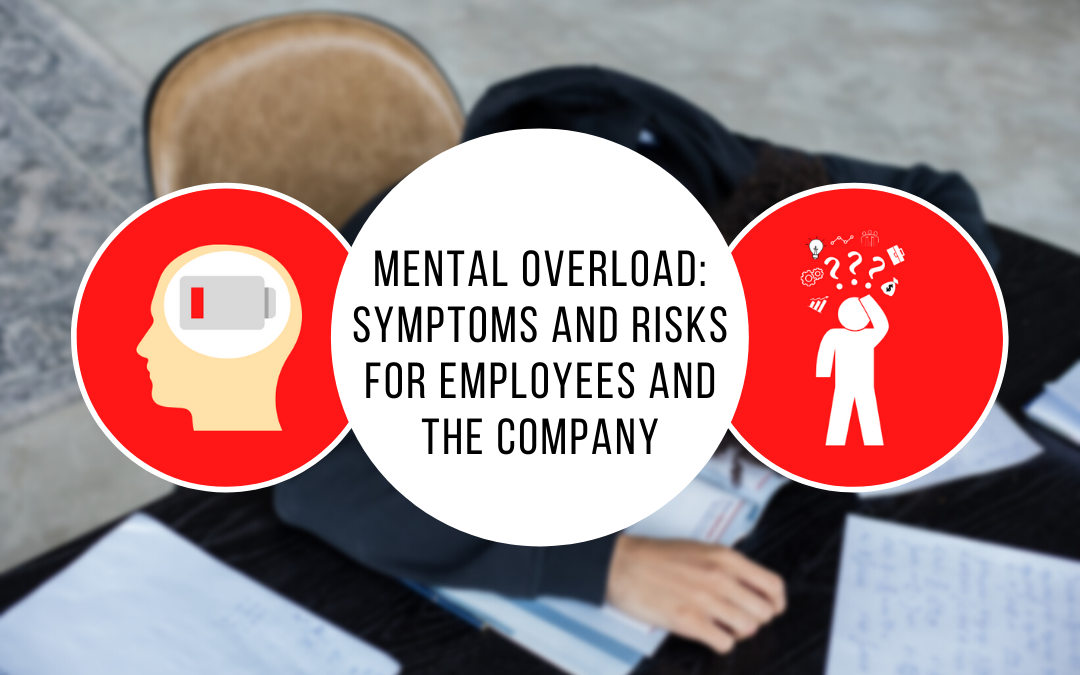You are a company manager and have to face behavioral problems from your employees? Do you know the problem of mental workload at work ? This problem has many consequences and induces a torrent of emotions from the employee, generally resulting in strong irritability. In order to curb this problem, it is necessary to detect, treat and, above all, prevent it.
The symptoms of burnout
When in a team, a department, you have to deal with a colleague who is easily irritable, who has problems with insomnia, this may be an alert to take into account.
Don’t let doubts creep in and behaviors become more pronounced. This change in mood may be temporary, due to family or health problems. Once these doubts are removed, you must act quickly as a business leader.
Burnout can also be highlighted by crises in the middle of meetings or conflicts with colleagues. Notice that your employee is not responding to orders? That his anxiety causes him to fail outside people or his colleagues? The syndrome seems to be well entrenched in his or her life: you need to deal with it before it gets worse and more serious behavioral problems occur. Prevention is essential at this stage.
If your employee is performing well and giving you satisfaction, but is dissatisfied with his or her work, you can encourage him or her and offer an interview. This interview will be an opportunity to calm his anxieties or to resolve situations that seem inextricable.


Mental overload: possible causes of your employees’ mood swings
Whatever the situation you are confronted with as a manager, you must play the prevention card in order not to amplify the consequences of your employee’s anxiety. There are many possible causes of burnout. In fact, to help you see more clearly, here are some of the main causes:
- multiple objectives to be achieved within the framework of his position;
- demand for productivity that is not in line with financial or human resources;
- too short a time to complete a task ;
- repetition of tasks leading to employee fatigue;
- requirements that are too high or in contradiction with the employee’s job description;
- organizational problems resulting from an inability to fulfill missions ;
- team cohesion problem;
- too much autonomy within the position;
- too much stress ;
- too rapid a change in assignments for the employee;
- poor distribution of tasks within the same team;
- over-qualified employee who does not take on assignments related to his professional value.
When an employee is not feeling well at work, those around him or her may suffer, having to endure their complaints and worry about their mental health. Of course, the entourage also includes close colleagues who can offer to temporarily lighten certain tasks.
A tool to reduce mental workload at work?
What are the risks for a mentally exhausted employee?
Various risks are incurred by an employee affected by mental load, hence the importance of quickly finding effective and lasting solutions. Need ideas for solutions to mental workload at work? Here are some tips:
First of all, it can come from the way you manage your team. Indeed, you can, without meaning to and depending on your operating mode, impose too much pressure on your employees. In this case, you can take a management course to find out what can be improved.
Secondly, if productivity is a key objective for your employee, you can provide satisfaction by relieving him or her of certain assignments or tasks. Thus, a review of the missions or of the job description is a good way to go. In order to prevent this phenomenon from becoming too widespread, to avoid anxiety attacks, physical problems and insomnia, you must take care of this syndrome quickly.
Multiplying mistakes, showing irritability or aggressiveness towards colleagues, hierarchy and clients are physical symptoms to be taken seriously. This is not a sign of rebellion, but rather an alert arising from this phenomenon.
Being perfectly aware of his missions, the employee will multiply the requirements he imposes on himself. This can lead to bringing work home, thinking heavily about work in his spare time, causing anxiety and uncontrollable reactions.
In the most extreme cases, periods of depression, as well as emotional overload, intense stress, anxiety and health problems can occur and become permanent. The evolution of this situation can be disabling for the employee and become a hindrance for the company. In order to avoid a burn-out In order to avoid a transfer or a prolonged work stoppage, it is necessary to take care of the employee’s mental health.
In more common cases, the employee may have extreme reactions that are out of character and may seem exaggerated in a given context. In all cases, the company must act and can propose solutions such as: a cocooning space for relaxation, time for the employee to disconnect, the lightening of his missions, or the delegation of tasks.

